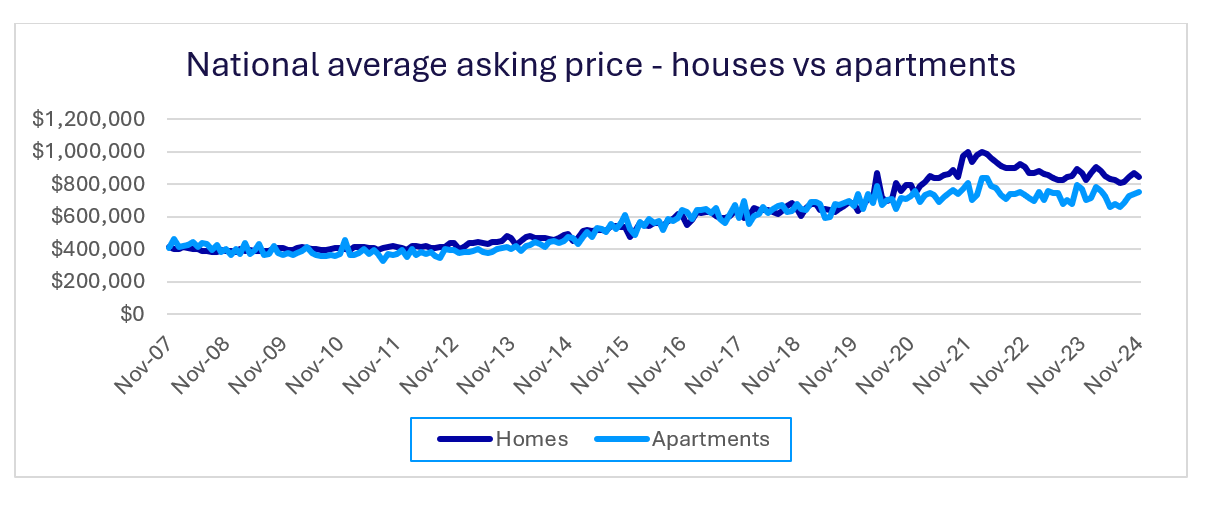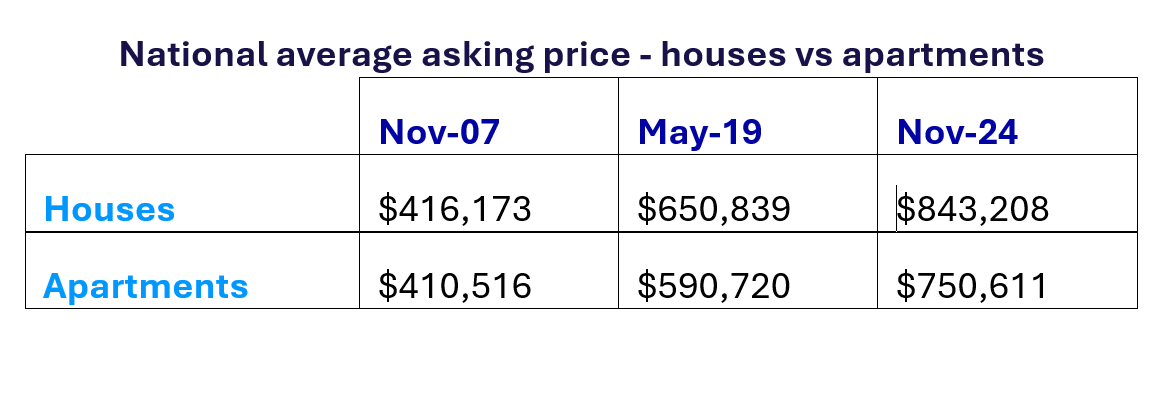Which offers better long-term value?

New data from realestate.co.nz shows that while houses have historically delivered stronger long-term price growth than apartments, the gap between the two may be narrower than expected – particularly over shorter timeframes.
Between May 2019 and November 2024, both housing types experienced similar growth rates.
During this five-and-a-half-year period, the average asking price for houses rose 29.6%, increasing from $650,839 to $843,208. Meanwhile, apartments saw a comparable rise of 27.1%, with average prices climbing from $590,720 to $750,611.

Seventeen-year perspective: The gap widens
Taking a longer view, houses outpaced apartments in price growth over the past 17 years.
Between November 2007 and November 2024, the national average asking price for houses grew 102.6%, jumping from $416,173 to $843,208. In contrast, apartments increased by 82.8% over the same period, rising from $410,516 to $750,611.

Vanessa Williams (pictured above), spokesperson for realestate.co.nz, attributed the difference to land value.
“Houses have delivered stronger long-term gains because they typically include more land, which increases in value over time,” Williams said.
“In contrast, apartments often don’t benefit as directly from land value, as the land is usually shared among all units in the complex or, in some cases like leasehold properties, owned by someone else.”
Apartments: A game-changer for first-home buyers
Despite their slower growth in value, apartments remain an attractive entry point for first-home buyers due to their lower price tags, realestate.com.au found.
In Auckland, the average asking price for apartments in November was $750,596 – 29.3% less than the region’s average house price of $1,062,295.
This significant price gap makes a notable difference for buyers looking to save for a deposit.
“The cost to get into the property market is often lower for apartments,” Williams said.
“With an average asking price of an apartment in Auckland sitting at around $300,000 less than a house, the difference in deposit required could be a game-changer for first-time buyers.”
Lifestyle vs investment: The buyer’s choice
Williams noted that the choice between a house and an apartment often comes down to more than just price growth. Lifestyle plays a critical role in buyer decisions.
“It’s not just about the numbers – lifestyle plays a huge role in choosing between a house and an apartment.
Some buyers prioritise the convenience of city living with minimal maintenance, while others value the space and flexibility of a house. Understanding these trade-offs will help you make the best decision for your future.”
While houses may offer stronger long-term returns due to land value, apartments provide affordability, flexibility, and a lower barrier to entry – particularly for first-time buyers, realestate.co.nz reported.
Ultimately, the choice comes down to individual needs, priorities, and financial goals.
Get the hottest and freshest mortgage news delivered right into your inbox. Subscribe now to our FREE daily newsletter.



